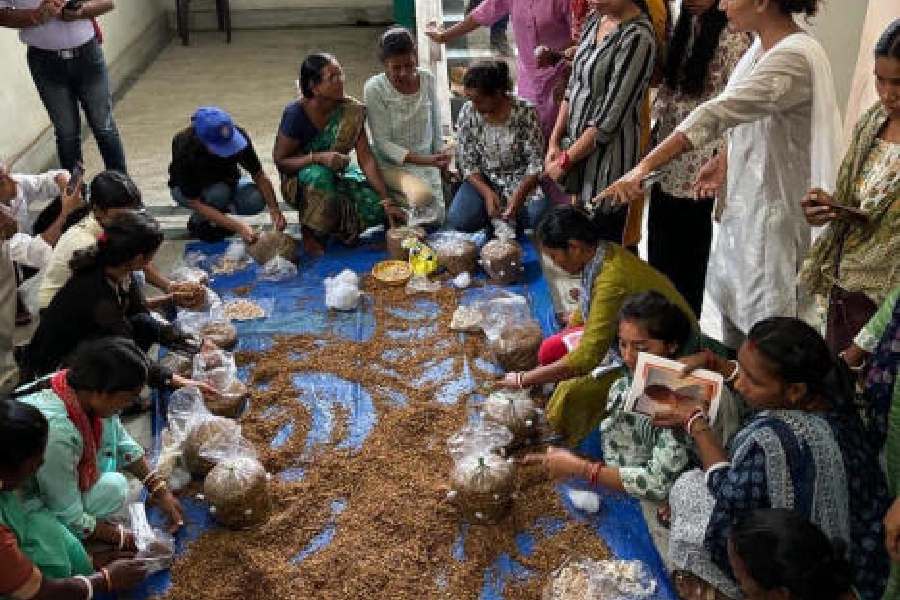The Centre for Floriculture and Agri-Business Management (COFAM) of North Bengal University (NBU) has been, in recent months, giving hands-on training on oyster mushroom cultivation to women from different tea gardens of north Bengal.
The aim, COFAM sources said, is to make them financially self-reliant. Mushroom, a cash crop, has a growing demand in homes and restaurants alike.
This week, the centre successfully completed a practical training session where 60 women from tea estates located in Darjeeling hills, the Terai and the Dooars participated to learn about mushroom cultivation.
Debasis Dutta, the head of COFAM and the officiating registrar of NBU, said the idea was to provide women extra earning options through sustainable agricultural practices.
“We have trained them on how to cultivate oyster mushrooms. In the future, we are ready to provide necessary assistance to the participants so that they can successfully get into mushroom farming,” said Dutta.
Amrendra Kumar Pandey, the practical demonstrator of COFAM, said they focused on substrate preparation, spawning and post-harvest management. The training was conducted by experienced professionals and researchers from NBU.
“The participants got into hands-on activities, which allowed them to apply their knowledge gained during the training. The trainees were from different educational backgrounds and ages. In fact, some of them were even students,” said Pandey.
He said that by growing mushrooms at their own homes, women could make decent earnings.
Mushroom cultivation, he pointed out, did not need land or much money but a dark place and skill.
“They will be able to earn a good amount by merely spending ₹50 to ₹60 on one mushroom cylinder. These days, mushroom and mushroom-made products have good market value. We can also help them merchandise their produce by linking them with potential buyers,” added Pandey.
The resource persons, sources said, also trained the participants on the value addition of mushrooms, including making pickles and other items from their produce.
Rupam Deb, who is associated with activities pertaining to women’s empowerment in the Dooars tea belt, appreciated the initiative.
“Such practical training will definitely help women, especially those who dwell in tea gardens and other remote rural areas in the region, to earn extra money while sitting at home,” he said.
Kanika Dhanwar, one of the trainees who is from a tea state in Hasimara of Alipurduar, said she would start her own business after learning to cultivate mushrooms.
“In tea estates, we don’t have too many options to make some earnings. Through mushroom cultivation, I can make some money for my family,” she said.











